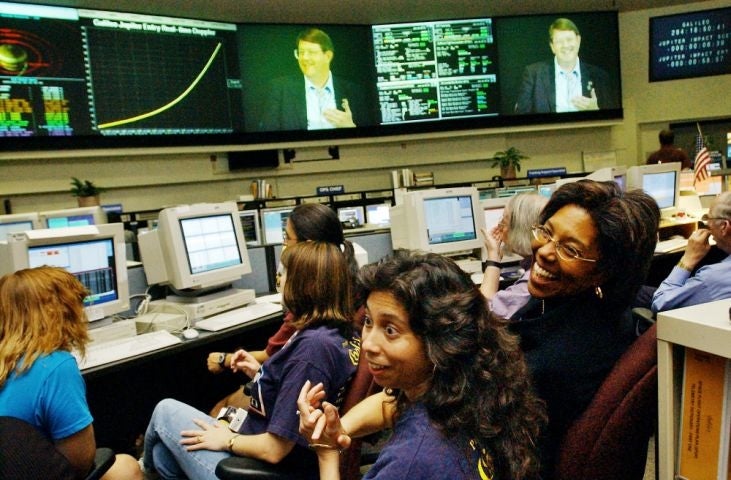Doctor Claudia Alexander: Pioneering space scientist who worked on the Galileo mission to Jupiter and the Rosetta comet programme
She wanted to be a journalist but her parents steered her in another direction

Your support helps us to tell the story
From reproductive rights to climate change to Big Tech, The Independent is on the ground when the story is developing. Whether it's investigating the financials of Elon Musk's pro-Trump PAC or producing our latest documentary, 'The A Word', which shines a light on the American women fighting for reproductive rights, we know how important it is to parse out the facts from the messaging.
At such a critical moment in US history, we need reporters on the ground. Your donation allows us to keep sending journalists to speak to both sides of the story.
The Independent is trusted by Americans across the entire political spectrum. And unlike many other quality news outlets, we choose not to lock Americans out of our reporting and analysis with paywalls. We believe quality journalism should be available to everyone, paid for by those who can afford it.
Your support makes all the difference.Claudia Alexander was a pioneering scientist at the Jet Propulsion Laboratory in Pasadena who helped direct Nasa’s Galileo mission to Jupiter and the international Rosetta space exploration project, which marked the first rendezvous between a space craft and a comet. She conducted landmark research on the evolution and interior physics of comets, Jupiter and its moons, solar wind and other subjects.
“Claudia brought a rare combination of skills to her work,” said Charles Elachi, director of the Jet Propulsion Laboratory. “Of course, with a doctorate in plasma physics, her technical credentials were solid. But she also had a special understanding of how scientific discovery affects us all, and how our greatest achievements are the result of teamwork.”
Born in Canada and raised in California’s Silicon Valley, she joined JPL soon after graduate school. She was awarded a doctorate by the University of Michigan, which named her its Woman of the Year in 1993. She had planned on becoming a journalist, but her parents steered her in another direction, insisting that she pursue a course that would better serve society.
“My parents blackmailed me,” she once said. “I really wanted to go to the University of California at Berkeley, but my parents would only agree to pay for it if I majored in something useful, like engineering. I hated engineering.”
Alexander, who died of breast cancer, was the last project manager for Nasa’s Galileo mission, in which twin spacecraft launched in 1989 made a to Jupiter, using gravity from Earth and Venus to propel themselves. Along the way, they provided unprecedented observations of the solar system.
Claudia Joan Alexander, space scientist: born Vancouver 30 May 1959; died Arcadia, California 11 July 2015.
Join our commenting forum
Join thought-provoking conversations, follow other Independent readers and see their replies
Comments